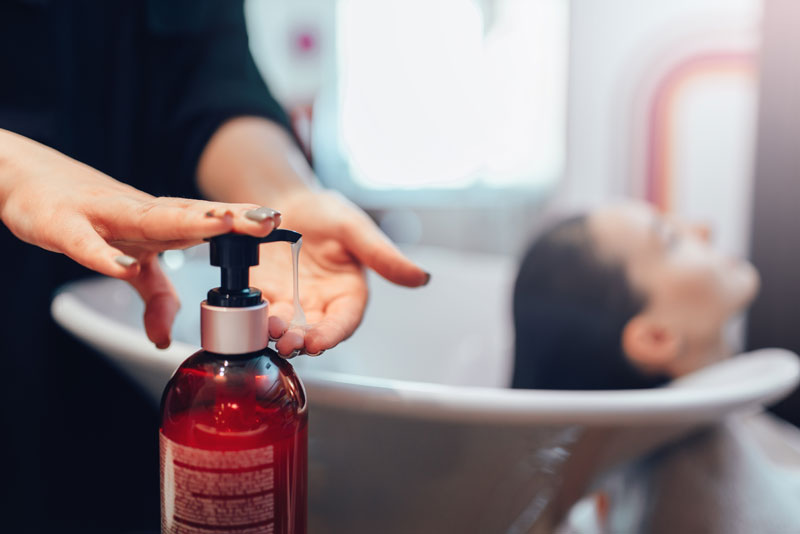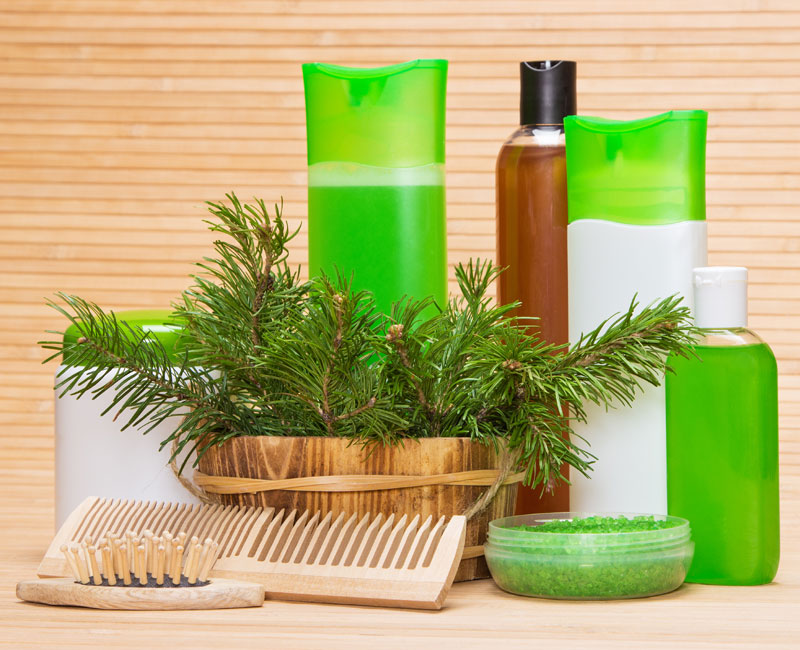 The rapidly changing fashions and styles and a growing awareness of ill-effects of chemicals on human health are reshaping the hair care product industry. India leads the trend with her high growth rates and a focus on herbals.
The rapidly changing fashions and styles and a growing awareness of ill-effects of chemicals on human health are reshaping the hair care product industry. India leads the trend with her high growth rates and a focus on herbals.
The worldwide hair care products market is expected to touch $112.5 billion by 2025, according to a recent report by Data Bridge Market Research. The market revenues stood at $81.3 billion in 2017 indicating the estimated growth of 3 per cent year on year during the forecast period.
The three main products that come under the hair care category are Colorants, Hair Sprays, and Shampoos. The prominent players in the segment include Amway, Aveda Corporation, Avon, Beiersdorf AG, Cadiveu Professional USA, Combe Incorporated, Conair Corporation, Goody Products, Henkel Corporation, Johnson & Johnson, Kao Corporation, L’oreal Group, Marico Limited, Naturacosmeticos SA, Olaplex, Pai Shau, Procter & Gamble, Revlon Group, Sheseido Company, Unilever, and Yves Rocher. The hair care product vendors use a range of channels to take their products to the consumer. These include direct sales, hypermarkets and retail chains, specialised cosmetics retailers, druggists and chemists and e-commerce platforms.
Amongst regions, Europe controls the highest revenue share (34.5%) of the worldwide hair care market followed by the Americas as per a study by Market Research Future. The high demand in Europe is primarily due to the developed markets of Italy and the UK.
Trends in hair care
Even as the market exhibits steady growth, there are a few key factors impacting the hair care product business worldwide. Over the past few years, the consumer demand for hair care therapies, hair salons, and cosmetics studios has grown tremendously. The use of products by these therapists and practitioners has gained immense value while driving the sales of hair care brands. As the young consumers are influenced by the brand and product choices of their celebrity role models, the product recommendations and endorsements by celebrities have become essential for brands to stay relevant.
At another level, with the rapidly changing external world, the consumer choices too are shifting at great speed. What was fashionable yesterday changes today and what is in demand today may become irrelevant tomorrow. With hair stylists coming up with innovative styles and fresh new looks every few days, the product marketers too have to cope with this change by changing their brand positioning and messaging at a break-neck pace.
At another level, brand marketers are experiencing a marked increase in professional work culture, personal grooming and appearance influencing what people buy. As every person wants to look good while maintaining a pleasant professional outlook, the demand for hair care products is on the rise.
The scenario in India
The story in India is not too different. Being the second largest segment within cosmetics and personal care products industry in India, hair care is estimated to be $3,054 million (₹ 21,313 crore) in 2018. Expanding faster than the global market, the Indian market is expected to grow by 4.8 per cent year-on-year till 2021. The hair care products sold in the Indian market range from shampoos, conditioners, hair tonics, hair sprays, hair gels, and hair dyes, among others.
Providing an aggressive outlook for the haircare market in India, a research firm Mordor Intelligence predicts that the sector will post a healthy annual growth between the years 2018 and 2023. The sectors such as automobile, banking, education, information technology, insurance, offshore outsourcing, real estate, and telecommunications exhibited a high growth during the post-liberalisation period. Powered by a sustained growth and new employment opportunities generated for the middle classes, the towns adjacent to metropolitan centres too have developed and expanded very fast. This rapid rise in urbanisation and disposable incomes along with global connectivity has fueled people’s desire to look presentable and professional, driving sales for hair care products in the country. Over the years, even men’s grooming products in this segment such as shampoos, conditioners, gels, sprays, etc., too have shown a high uptake in sales.
The top vendors that dominate the hair care segment in India include Amway, Beiersdorf, Biotique Botanical, Dabur India Ltd, Habibs, Henkel Corporation, Hindustan Unilever Ltd (Lakmé Cosmetics and others), ITC Limited (Fiama Di Wills), Johnson & Johnson, L’oreal, Marico Limited, Oriflame Cosmetics, Procter & Gamble, and Revlon Group, among others. The brands such as Patanjali Ayurved and Himalaya Herbals have also gained immense popularity in the Indian market over the past few years.
Ayurveda on demand
 Many hair care solutions make use of chemical ingredients such as sodium lauryl sulfate, diethanolamine, peroxide that are said to have adverse effects on human health. Some of the health risks that these chemicals may potentially cause are asthma, cancer, and severe itching among others. Due to a growing awareness of these health risks, consumers are demanding Ayurvedic products. The brand owners too are making use of Ayurvedic or natural ingredients to address this growing demand of health-conscious customers, observes a study by Market Research Future.
Many hair care solutions make use of chemical ingredients such as sodium lauryl sulfate, diethanolamine, peroxide that are said to have adverse effects on human health. Some of the health risks that these chemicals may potentially cause are asthma, cancer, and severe itching among others. Due to a growing awareness of these health risks, consumers are demanding Ayurvedic products. The brand owners too are making use of Ayurvedic or natural ingredients to address this growing demand of health-conscious customers, observes a study by Market Research Future.
Citing the statistics from Indian Brand Equity Foundation, the firm mentions that in the year 2017, the penetration of the Ayurvedic hair oil penetration was about 8 per cent.
As more and more brands looking to include a dash of herbal and natural in their products, it will be interesting to see how the sector shapes up in the near future. As it appears today, Ayurveda, with its rich reservoir of knowledge of herbals, presents an apt and ready source of inspiration for brands to draw from.

